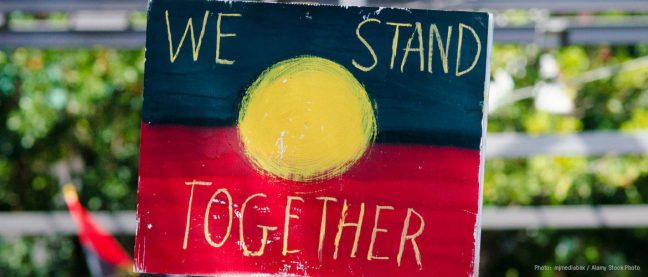As one of the most ethnically diverse nations in the world, Australia Day has become a way of celebrating everything that is great about living in our prosperous, safe and cohesive society.
But the current choice of 26 January as Australia’s national day is deeply problematic for many Aboriginal and Torres Strait Islander peoples.
This is because 26 January marks the beginning of British colonial settlement in Australia, which was achieved without a treaty or any recognition of Indigenous rights or prior land ownership. For Australia’s First Peoples, this date marks the beginning of Indigenous dispossession and, in many places, the violence used to obtain traditional lands.
Far too many Indigenous Australians continue to face stark inequality, and remain a marginalised and impoverished minority. At its core Oxfam’s work focuses on addressing the inequality that continues to drive poverty, both at home and abroad.
There is a growing public debate about 26 January as the date to celebrate Australia Day and increasing momentum to move to a more inclusive date of national celebration.
As a rights-based organisation, with an Aboriginal and Torres Strait Islander Peoples Program and a long history of working in partnership with many Indigenous organisations and campaigns, Oxfam believes that the Federal Government should choose another date for our national day that includes all Australians.
– Helen Szoke, Chief Executive Oxfam Australia
